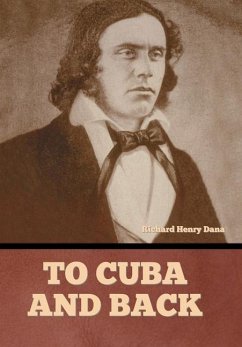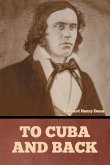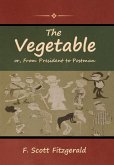CONTENTS I. -From Manhattan to El Morro II. -Havana: First Glimpses (1) III. -Havana: First Glimpses (2) IV. -Havana: Prisoners and Priests V. -Havana: Olla Podrida VI. -Havana: A Social Sunday VII. -Havana: Belén and the Jesuits VIII. -Matanzas IX. -To Limonar by Train X. -A Sugar Plantation: The Labor XI. -A Sugar Plantation: The Life XII. -From Plantation to Plantation XIII. -Matanzas and Environs XIV. -Reflections via Railroad XV. -Havana: Social, Religious and Judicial Tidbits XVI. -Havana: Worship, Etiquette and Humanitarianism XVII. -Havana: Hospital and Prison XVIII. -Havana: Bullfight XIX. -Havana: More Manners and Customs XX. -Havana: Slaves, Lotteries, Cockfights and Filibusters XXI. -A Summing-up: Society, Politics, Religion, Slavery, Resources and Reflections XXII. -Leave-taking About the author: Richard Henry Dana, (born Aug. 1, 1815, Cambridge, Mass., U.S.-died Jan. 6, 1882, Rome, Italy), American lawyer and author of the popular autobiographical narrative Two Years Before the Mast. Dana withdrew from Harvard College when measles weakened his eyesight, and he shipped to California as a sailor in August 1834 to regain his health. After voyaging among California's ports and gathering hides ashore, he rounded Cape Horn, returned home in 1836, and reentered Harvard. His travel experiences cured him physically and evoked his sympathy for the oppressed. In 1840, the year of his admission to the bar, he published Two Years Before the Mast, a personal narrative presenting "the life of a common sailor at sea as it really is" and showing the abuses endured by his fellow sailors. The book was immediately popular, and its realistic descriptions made it an American classic. In 1841 he published The Seaman's Friend (also published as The Seaman's Manual), which became known as an authoritative guide to the legal rights and duties of seamen. Against vigorous opposition in Boston, Dana gave free legal aid to blacks captured under the Fugitive Slave Law. In 1863, while serving as U.S. attorney for Massachusetts (1861-66), he won before the U.S. Supreme Court the case of the Amy Warwick, securing the right of the Union to blockade southern ports without giving the Confederate states an international status as belligerents. ... (britannica)
Hinweis: Dieser Artikel kann nur an eine deutsche Lieferadresse ausgeliefert werden.
Hinweis: Dieser Artikel kann nur an eine deutsche Lieferadresse ausgeliefert werden.








